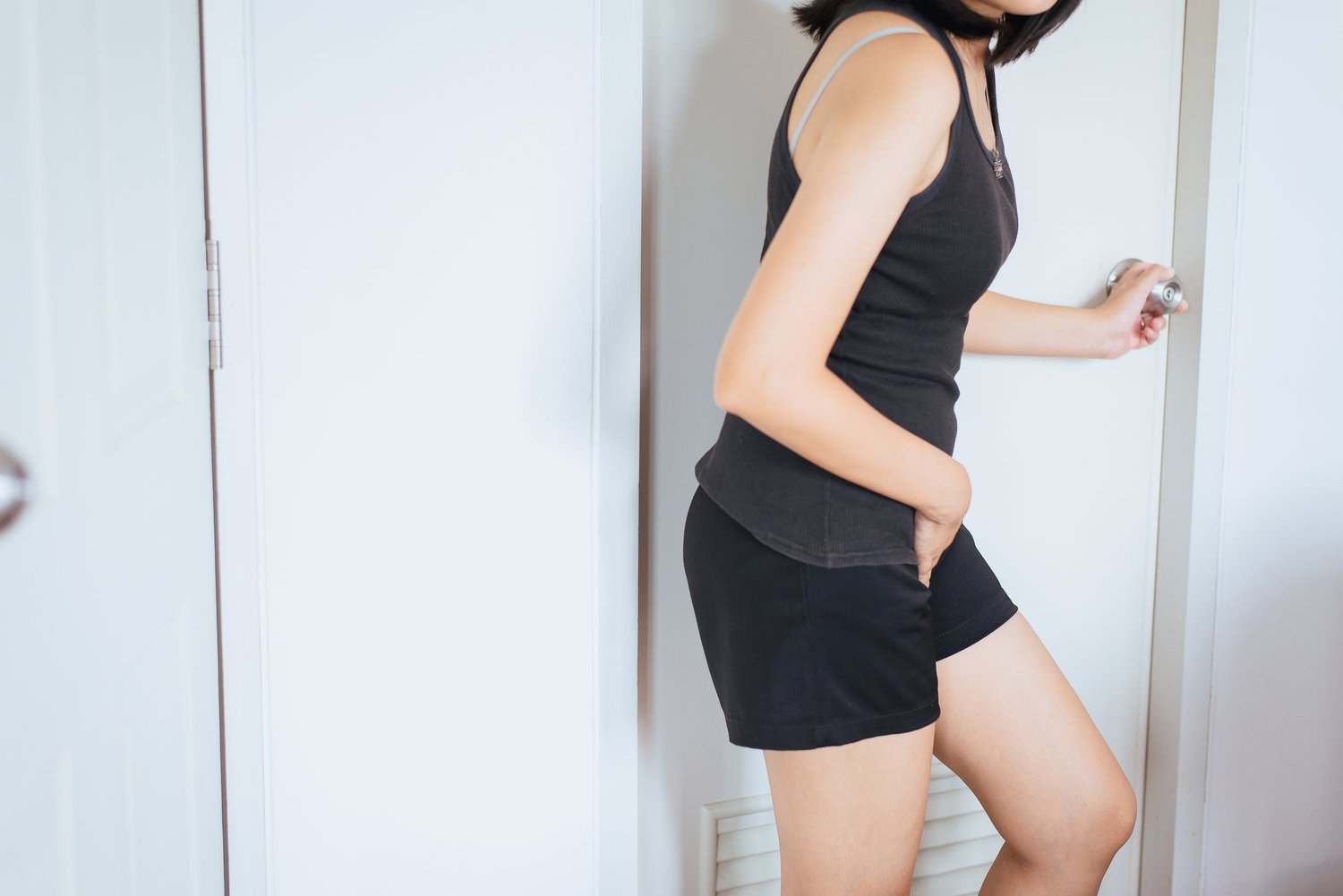According to the American Urological Association, one-quarter to one-third of men and women in the United States experience urinary incontinence. UI is more common among women than it is in men, with an estimated 30 percent of females aged 30-60 suffering from it, compared to 1.5-5 percent of men. UI can occur due to a number of different factors; stress, coughing, before and after pregnancy, and it is a lot more common as a side effect of other conditions such as obesity. Also, the chances of urinary incontinence increase as people get older.
1. Pelvic Floor Exercises
The pelvic floor is a sheet of muscles that support your bladder and bowel. If it weakens, you could experience urine leakage when coughing, laughing, or sneezing. You may feel a need to visit the bathroom frequently or have an urgency to get to the bathroom and experience leaking on the way.
Pelvic floor exercises (sometimes known as Kegel exercises) aim to strengthen your muscles to support your organs, improve bladder control, and prevent urine leakage. Studies comparing people who exercised their pelvic muscles with those who didn’t found that people who practiced Kegels were 2.5-17 times more likely to fully recover from urinary incontinence. Best of all, pelvic floor exercises can be practiced anywhere!
2. Retrain Your Bladder
Bladder training is a behavioral therapy that is focused on increasing the time between urinations. Muscles are in control of your bladder, which means that your muscles can be strengthened in a similar way to working out your biceps and quadriceps. People suffering from UI will usually develop a habit of going straight to the bathroom when they feel they are about to experience leakage.
However, this exacerbates the problem by causing the bladder to get used to holding less urine and making it more sensitive and overactive. Bladder training can aid in reducing the effects of urinary incontinence by helping the bladder to hold more urine and prevent it from being overactive.
3. Keep Your BMI in Check
Obesity and being overweight are associated with a higher risk of developing urinary incontinence. One study showed that women over the age of 70 revealed that the prevalence of UI and stress-induced UI was no less than twofold higher among those in the highest body mass index (BMI) category, compared to the lowest. Women that took action to lose at least 5 percent of their BMI had a lower chance of experiencing new or persistent stress urinary incontinence over 3 years than those who lost less weight.
Aiming to reduce your BMI if you are currently overweight or fear you may be obese could help you to get your UI under control. The following lifestyle choices can help reduce your BMI:
-
A brisk 30-minute walk 5 times a week
-
Consuming a diet high in fruits and vegetables
-
Cutting down on saturated fats
-
Avoiding snacks, especially of the sugary variety
-
Increasing fiber intake
-
Ditching processed foods
4. Limit Caffeine and Alcohol
Some of you may be sad to hear this but caffeine and alcohol beverages increase urine production. It’s wise to limit your consumption of these beverages if you are suffering from UI. A study showed that an intake of at least 204 milligrams of caffeine per day was associated with urinary incontinence in women.
5. Start Practicing Yoga
Yoga can go a long way in relieving symptoms of UI. According to a study from the University of California San Francisco (UCSF), yoga can help people with urinary incontinence gain more control over urination and avoid accidental leakage. People that took part in a yoga program that was designed to improve pelvic health had a 70 percent reduction in their urine leakage!
There are multiple reasons for this; Incontinence is often connected with anxiety and depression, so people that have UI may benefit from the mindful meditation and relaxation aspect of yoga. Practicing yoga consistently can also help to strengthen the pelvic floor muscles that support the bladder and safeguard from incontinence.
Visit MetroPartners OBGYN
If you are suffering from the effects of UI, don’t hesitate to schedule an appointment with us. Get all the help you need in order to alleviate the effects of UI and put your mind at ease.

